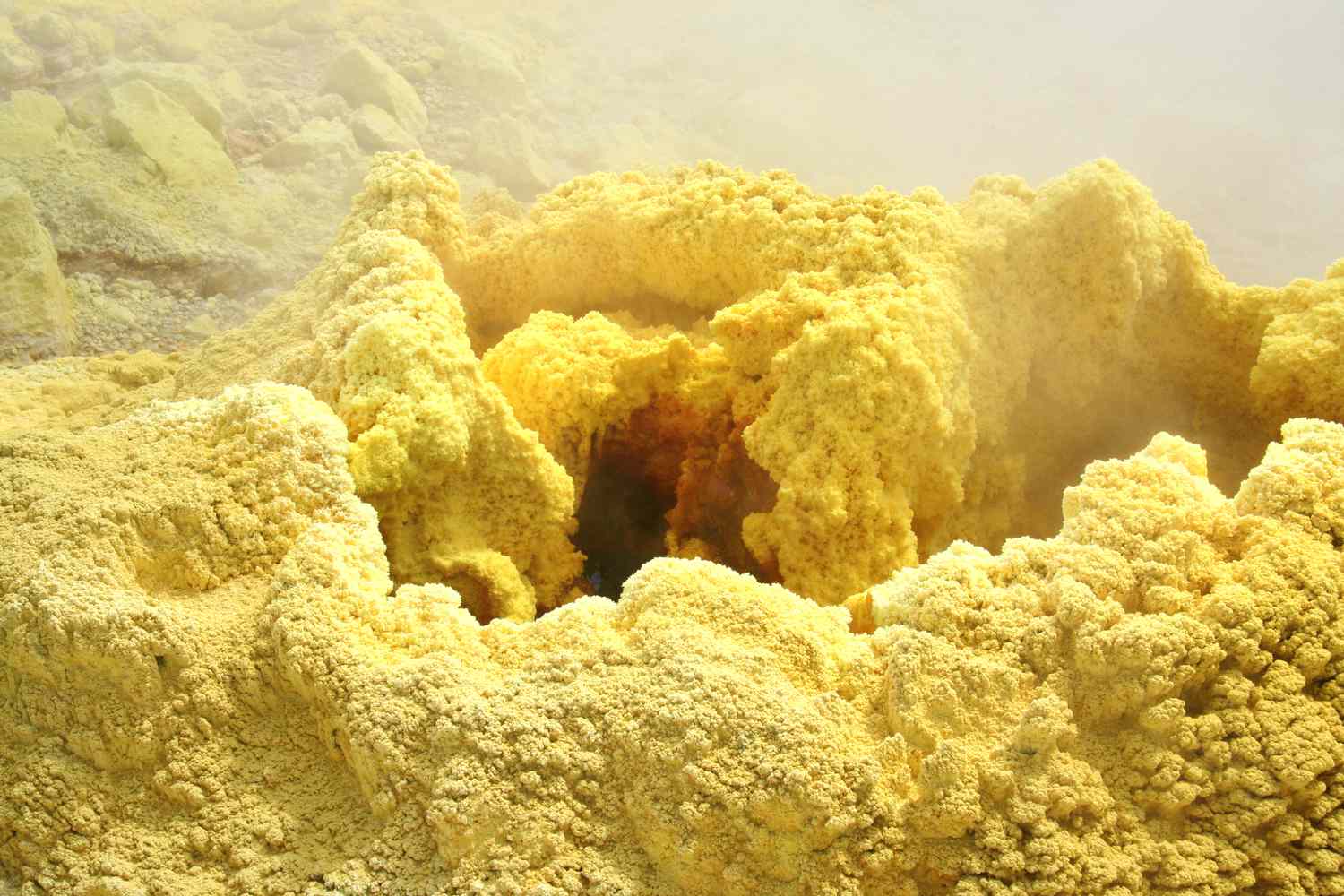
Sulfur is a fascinating element with a rich history and many uses. Found in everything from fireworks to fertilizers, this yellow mineral has been known since ancient times. Did you know that sulfur is essential for life? It's a key component of amino acids, which are the building blocks of proteins. Sulfur also plays a crucial role in the Earth's climate by forming aerosols that reflect sunlight. In addition, it's used in the vulcanization of rubber, making tires more durable. Whether you're a science enthusiast or just curious, these 31 facts about sulfur will surprise and inform you.
What is Sulfur?
Sulfur, a yellow, non-metallic element, has been known since ancient times. It plays a crucial role in various biological and industrial processes. Let's dive into some fascinating facts about this essential element.
- Sulfur's atomic number is 16, placing it in the third period of the periodic table.
- Ancient civilizations, including the Egyptians and Greeks, used sulfur in religious ceremonies and medicine.
- The name "sulfur" comes from the Latin word "sulphurium," meaning brimstone.
- Sulfur is the tenth most abundant element in the universe.
- It is found in meteorites, volcanoes, hot springs, and even in the human body.
Sulfur in Nature
Sulfur is naturally occurring and can be found in various forms and environments. Here are some intriguing facts about sulfur in nature.
- Elemental sulfur often occurs near volcanic regions and hot springs.
- Sulfur is a key component of many minerals, including pyrite (fool's gold) and galena.
- The Earth's crust contains about 0.03% sulfur by weight.
- Sulfur is essential for life, as it is a component of amino acids and vitamins.
- Plants absorb sulfur from the soil, which is vital for their growth and development.
Industrial Uses of Sulfur
Sulfur's versatility makes it valuable in numerous industries. Let's explore some of its industrial applications.
- Sulfuric acid, derived from sulfur, is one of the most widely produced chemicals globally.
- It is used in the production of fertilizers, helping to enhance crop yields.
- Sulfur is a key ingredient in the vulcanization of rubber, improving its durability and elasticity.
- It is used in the manufacturing of detergents and cleaning agents.
- Sulfur compounds are essential in the production of pharmaceuticals and cosmetics.
Sulfur in Everyday Life
Sulfur's presence extends beyond industrial uses; it also plays a role in our daily lives. Here are some everyday applications of sulfur.
- Sulfur is used in the production of matches, fireworks, and gunpowder.
- It is an ingredient in some skin care products, helping to treat acne and other skin conditions.
- Sulfur is used in the preservation of dried fruits, preventing spoilage and discoloration.
- It is found in some shampoos and hair treatments, combating dandruff and other scalp issues.
- Sulfur is used in the winemaking process to prevent bacterial growth and preserve flavor.
Environmental Impact of Sulfur
While sulfur is essential, it can also have environmental consequences. Here are some facts about sulfur's impact on the environment.
- Sulfur dioxide (SO2) is a significant air pollutant, contributing to acid rain.
- Acid rain can harm aquatic ecosystems, soil, and plant life.
- Industrial processes, such as burning fossil fuels, release large amounts of sulfur dioxide into the atmosphere.
- Efforts to reduce sulfur emissions have led to cleaner air and healthier environments.
- Sulfur compounds can also contribute to the formation of particulate matter, affecting air quality.
Fun and Surprising Facts About Sulfur
Sulfur has some quirky and lesser-known aspects. Let's uncover some fun and surprising facts about this element.
- Sulfur has a distinct, unpleasant odor, often described as the smell of rotten eggs.
- It is used in the production of black gunpowder, which has been used in fireworks for centuries.
- Sulfur crystals can form beautiful, bright yellow formations in nature.
- The element is used in the process of bleaching paper and textiles.
- Sulfur is a key component in the production of certain insecticides and fungicides.
- Some bacteria can use sulfur compounds as an energy source, thriving in extreme environments like deep-sea vents.
The Final Word on Sulfur
Sulfur, with its bright yellow hue and distinctive smell, is more than just a chemical element. It's a key player in various industries, from agriculture to medicine. This element is vital for life, forming part of essential amino acids and vitamins. Its role in producing sulfuric acid makes it indispensable in manufacturing. Historically, sulfur has been known since ancient times, often associated with volcanic activity and used in early gunpowder recipes. Despite its sometimes unpleasant odor, sulfur's benefits far outweigh its drawbacks. From improving soil health to aiding in pharmaceuticals, sulfur's versatility is unmatched. Next time you encounter that familiar smell, remember the myriad ways this element impacts our daily lives. Sulfur isn't just a stinky substance; it's a cornerstone of modern civilization.
Was this page helpful?
Our commitment to delivering trustworthy and engaging content is at the heart of what we do. Each fact on our site is contributed by real users like you, bringing a wealth of diverse insights and information. To ensure the highest standards of accuracy and reliability, our dedicated editors meticulously review each submission. This process guarantees that the facts we share are not only fascinating but also credible. Trust in our commitment to quality and authenticity as you explore and learn with us.
